Countries
IPPOG
IPPOG Forum Members
Portugal
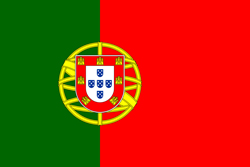
Intro
Particle physics outreach in Portugal is mainly pursued by LIP, the Laboratory for Instrumentation and Experimental Particle Physics. LIP is a nation-wide research institute with 3 nodes associated with the universities of Lisbon, Coimbra and Minho, and connections to other universities. It covers areas of experimental physics, collaborating in particle and astroparticle experiments at CERN and around the world, radiation detectors and technological developments for particle physics, and their application to societal issues. LIP also collaborates with theoretical groups around the country.
Details
A divulgação da física de partículas é atualmente feita sobretudo pelo LIP - o Laboratório de Instrumentação e Física Experimental de Partículas. O LIP é um Laboratório Associado de âmbito nacional, com 3 pólos associados às universidades de Lisboa, Coimbra e Minho, e ligações a outras universidades portuguesas. O seu programa cobre uma vasta área de física experimental, em que colabora em experiências de física de partículas no CERN e à volta do mundo, detetores de radiação e desenvolvimentos tecnológicos associados à física de partículas, bem como a sua aplicação a áreas de interesse societal. Para além disto, o LIP desenvolve atividades em colaboração com vários grupos de física teórica em Portugal.
Portuguese Physical Society: https://fisica-particulas.spf.pt
JOINED: 2016
CURRENT STATUS: MEMBER
Representative
Luis Afonso
Content in local language to be provided
IPPOG
IPPOG Forum Members
Portugal

Intro
Particle physics outreach in Portugal is mainly pursued by LIP, the Laboratory for Instrumentation and Experimental Particle Physics. LIP is a nation-wide research institute with 3 nodes associated with the universities of Lisbon, Coimbra and Minho, and connections to other universities. It covers areas of experimental physics, collaborating in particle and astroparticle experiments at CERN and around the world, radiation detectors and technological developments for particle physics, and their application to societal issues. LIP also collaborates with theoretical groups around the country.
Details
A divulgação da física de partículas é atualmente feita sobretudo pelo LIP - o Laboratório de Instrumentação e Física Experimental de Partículas. O LIP é um Laboratório Associado de âmbito nacional, com 3 pólos associados às universidades de Lisboa, Coimbra e Minho, e ligações a outras universidades portuguesas. O seu programa cobre uma vasta área de física experimental, em que colabora em experiências de física de partículas no CERN e à volta do mundo, detetores de radiação e desenvolvimentos tecnológicos associados à física de partículas, bem como a sua aplicação a áreas de interesse societal. Para além disto, o LIP desenvolve atividades em colaboração com vários grupos de física teórica em Portugal.
Portuguese Physical Society: https://fisica-particulas.spf.pt
JOINED: 2016
CURRENT STATUS: MEMBER
Representative
Catarina Espírito Santo
Content in local language to be provided
IPPOG
IPPOG Forum Members
Poland
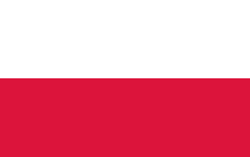
Intro
In Poland the particle physics research is concentrated in two biggest cities, Warszawa and Krakow, but there are also smaller groups in Kielce, Lodz and Wroclaw. The leading institutions are: AGH University of Science and Technology and Institute of Nuclear Physics Polish Academy of Sciences (Krakow), National Centre for Nuclear Research (Warszawa and Lodz), University of Warsaw and Warsaw University of Technology (Warszawa).
Polish physicists take part in many different experiments. At CERN they are among members of all large experiments at LHC: ALICE, ATLAS and LHCb (Krakow) ALICE and CMS (Warszawa), but also in NA61/SHINE. Similar studies are also performed at lower collisions energies available from smaller accelerator for STAR experiment (in USA) and Belle II experiment (in Japan). Other groups work in neutrino experiments in Japan (T2K, Super Kamiokande), USA (Minos) and Russia (Baikal GVD). There is also extensive involvement in cosmic-ray studies in observatories on the ground (Auger, HESS, HAWC, CTA and CREDO) or in satellites in the space.
All universities and research institutes organize outreach activities. Physicists from Krakow, Lodz, Poznan and Warszawa are involved in the International Masterclasses for high school students. Each year over 500 of them can listen to lectures and perform the measurements using the data from LHC experiments. They also take part in public events like Scientific Picnic in Warszawa or Researchers Night in Krakow.
Details
JOINED: 2016
CURRENT STATUS: MEMBER
Fizyka cząstek elementarnych jest rozwijana w Polsce głównie w dwu największych miastach: w Warszawie i w Krakowie, ale są mniejsze grupy w Kielcach, Łodzi i Wrocławiu. Wiodącymi instytucjami są: Akademia Górniczo-Hutnicza i Instytut Fizyki Jądrowej PAN (w Krakowie) Narodowe Centrum Badań Jądrowych (w Warszawie i Łodzi) oraz Uniwersytet Warszawski i Politechnika Warszawska.
Polscy fizycy biorą udział w wielu różnorodnych eksperymentach. W CERN są wśród członków wszystkich większych eksperymentów działających przy Wielkim Zderzaczu Hadronów (LHC): ALICE, ATLAS i LHCb (Kraków) ALICE i CMS (Warszawa), ale także innych, np. eksperymentu NA61/SHINE. Prowadzą również badania przy niższych energiach zderzeń w eksperymencie STAR (w USA) i Belle II (w Japonii). Inne grupy pracują w eksperymentach neutrinowych w Japonii (T2K, Super Kamiokande), w USA (Minos) i w Rosji (Baikal GVD). Bardzo istotny wkład wnoszą w badania promieniowania kosmicznego obserwatoriach na ziemi (Auger, HESS, HAWC, CTA i CREDO) oraz wykorzystując satelity.
Wszystkie uczelnie i instytuty badawcze prowadzą działalność popularyzatorską. Fizycy z Krakowa, łodzi, Poznania i Warszawy prowadzą warsztaty dla uczniów szkół średnich w ramach International Masterclasses. Każdego roku ponad 500 uczniów może wysłuchać wykładów o fizyce cząstek elementarnych i dokonać pomiarów korzystając z danych dostarczonych przez eksperymenty LHC. Organizowane są też wydarzenia dla szerszej publiczności takie jak coroczny Piknik Naukowy w Warszawie czy Noc Naukowców w Krakowie
JOINED: 2016
CURRENT STATUS: MEMBER
Representative
Marzena Lapka
IPPOG
IPPOG Forum Members
Montenegro
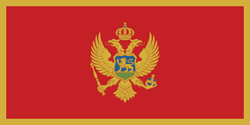
Intro
In Montenegro, high energy physics takes place at University of Montenegro. University of Montenegro has been a full member of several international scientific collaborations in particle physics: H1 collaboration at DESY institute in Hamburg, CMS collaboration at CERN in Geneva as well as RD50 collaboration at CERN. Scientists from University of Montenegro had participated to several other experiments during their scientific specializations. Faculty of Natural Sciences and Mathematics of University of Montenegro is devoted to rather diverse outreach activities ranging from Masterclasses to lectures for general audience during science promotion events.
Details
JOINED: 2016
CURRENT STATUS: MEMBER
U Crnoj Gori, fizika visokih energija izvodi se na Univerzitetu Crne Gore. Univerzitet Crne Gore punopravni je član nekoliko međunarodnih naučnih kolaboracija u fizici čestica: H1 kolaboracije u DESY institutu u Hamburgu, CMS kolaboracije u CERN-u u Ženevi, kao i RD50 kolaboracije u CERNu.
Profesori i saradnici sa Univerziteta Crne Gore učestvovalii su i u još nekoliko eksperimentalnih kolaboracija tokom svog naučnog usavršavanja. Prirodno-matematički fakultet Univerziteta Crne Gore posvećen je raznovrsnim aktivnostima u popularizaciji nauke, u rasponu od organizacije i realizacije masterklasa u fizici čestica do predavanja za opštu publiku tokom događaja promocije nauke.
JOINED: 2016
CURRENT STATUS: MEMBER
Representative
Sanja Damjanovic
IPPOG
IPPOG Forum Members
Italy

Intro
The Italian research agency dedicated to the study of the fundamental constituents of matter and the laws that govern them, under the supervision of the Ministry of Education, Universities and Research (MIUR), is the Italian National Institute for Nuclear Physics (INFN). It conducts theoretical and experimental research in the fields of subnuclear, nuclear and astroparticle physics. Groups from the Universities of Rome, Padua, Turin, and Milan founded the INFN on 8thAugust 1951 to uphold and develop the scientific tradition established during the 1930s by Enrico Fermi and his school, with their theoretical and experimental research in nuclear physics. In the latter half of the 1950s, INFN designed and built the first Italian accelerator, the electron synchrotron developed in Frascati, where its first national laboratory was set up. During the same period, INFN began to participate in research into the construction and use of ever-more powerful accelerators being conducted by CERN, in Geneva. Today INFN employs some 6000 scientists whose work is recognized internationally not only for their contribution to various European laboratories, but also to numerous research centres worldwide. All of INFN’s research activities are undertaken within a framework of international competition, in close collaboration with Italian universities on the basis of solid academic partnerships spanning decades.
As an Institution working on cutting-edge scientific issues, INFN has a significant impact on the progress of knowledge, on technological development and on the economy of the country. Aware of this role, and of the fact that it is the duty of a public body to share its activities and the results that derive from them with society, the Institute is increasingly committed to outreach and public engagement. The Institute plays an important role in the communication of physics at the national and local level, by promoting, designing and implementing initiatives for the dissemination and promotion of scientific culture, both for the general public and for specific targets. In addition to traditional initiatives, it studies and experiments new forms of communication, emphasizing the fundamental relationship between physics and other areas of knowledge. The Institute also contributes a lot to the training of high school students through scholarships, internships, teacher training and school-work projects.
Details
In Italia IPPOG è rappresentato dall’Istituto Nazionale di Fisica Nucleare (INFN). L’INFN è l’ente pubblico nazionale di ricerca, vigilato dal Ministero dell’Istruzione, dell’Università e della Ricerca (MIUR), dedicato allo studio dei costituenti fondamentali della materia e delle leggi che li governano. Svolge attività di ricerca, teorica e sperimentale, nei campi della fisica subnucleare, nucleare e astroparticellare. Le attività di ricerca dell’INFN si svolgono tutte in un ambito di competizione internazionale e in stretta collaborazione con il mondo universitario italiano, sulla base di consolidati e pluridecennali rapporti. La ricerca fondamentale in questi settori richiede l’uso di tecnologie e strumenti di ricerca d’avanguardia, che l’INFN sviluppa sia nei propri laboratori sia in collaborazione con il mondo dell’industria.
L’INFN è stato istituito l’8 agosto 1951 da gruppi delle Università di Roma, Padova, Torino e Milano al fine di proseguire e sviluppare la tradizione scientifica iniziata negli anni ‘30 con le ricerche teoriche e sperimentali di fisica nucleare di Enrico Fermi e della sua scuola. Nella seconda metà degli anni ’50, l’INFN ha progettato e costruito il primo acceleratore italiano, l’elettrosincrotrone realizzato a Frascati dove è nato anche il primo Laboratorio Nazionale dell’Istituto. Nello stesso periodo è iniziata la partecipazione dell’INFN alle attività di ricerca del CERN, il Centro europeo di ricerche nucleari di Ginevra, per la costruzione e l’utilizzo di macchine acceleratrici sempre più potenti. Oggi l’ente conta circa 6000 scienziati il cui contributo è riconosciuto internazionalmente non solo nei vari laboratori europei, ma in numerosi centri di ricerca mondiali.
JOINED: 2007
CURRENT STATUS: MEMBER
JOINED: 2017
Representative
Cecilia Collà Di Ruvolo
IPPOG
IPPOG Forum Members
Hungary
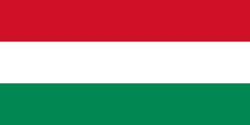
Intro
Content to be provided
Details
Content in local language to be provided
JOINED: 2016
CURRENT STATUS: MEMBER
Representative
Beata Kiraly
IPPOG
IPPOG Forum Members
Greece
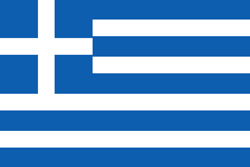
Intro
Greece has a long tradition in HEP since it has been one of the founding members of CERN. HEP research is carried out in Athens (both in the National and Kapodistrian as well as in the National Technical University), Aegean, Crete, Ioannina, Thessaloniki and in the National Research Centre “Democritos”. Experimental groups from Athens, Aegean, Ioannina and Thessaloniki participate in ALICE, ATLAS and CMS experiments.
Groups from Athens, Crete and Thessaloniki have been participati
Details
Η Ελλάδα έχει μακρά παράδοση στην Φυσική Υψηλών Ενεργειών (ΦΥΕ) αφού υπήρξε ένα από τα ιδρυτικά μέλη του CERN. Έρευνα στην ΦΥΕ διεξάγεται στην Αθήνα (τόσο στο Εθνικό και Καποδιστριακό Παν/μιο όσο και στο Εθνικό Μετσόβιο Πολυτεχνείο), στα Παν/μια Αιγαίου, Κρήτης, Ιωαννίνων, Θεσσαλονίκης και στο Εθνικό Κέντρο Ερευνών «Δημόκριτος». Πειραματικές ομάδες από Αθήνα, Αιγαίο, Ιωάννινα και Θεσσαλονίκη συμμετέχουν στα πειράματα ALICE, ATLAS και CMS.
Ομάδες από Αθήνα, Κρήτη και Θεσσαλονίκη συμμετέχουν στα Διεθνή Masterclasses από την πρώτη καθιέρωση τους. Τοπικά masterclasses και επισκέψεις σε σχολεία διοργανώνονται συχνά κατόπιν σχετικού αιτήματος τους.
JOINED: 2016
CURRENT STATUS: MEMBER
Representative
Nicos Tracas
The Hellenic Society for the Study of High Energy Physics has actively joined the European (now International) Particle Physics Outreach Group (EPPOG-IPPOG ), a CERN initiative back in 1997, establishing the Greek Outreach Group. The main objective is to disseminate to the open public the research and the achievements in the sector of Elementary Particles.
IPPOG
IPPOG Forum Members
France

Intro
In France, introducing young people and the general public to basic science (nuclear physics, physics of elementary particles, cosmology and astrophysics), the technological advances they require and their related applications (energy, health, etc.), is a key mission for the 25 CNRS/IN2P3 national research laboratories and platforms, and the CEA/IRFU. Our educational and outreach activities are carried out in close collaboration to teaching staff and take many forms: visit to laboratories, “Masterclass” discovery days, teacher-training courses, loans of cosmic-ray detectors for use in classrooms, teaching aids, exhibitions, websites, virtual visits, audiovisual productions, books, etc.
Our goal: to give people a taste for science and physics
Details
JOINED: 2016
CURRENT STATUS: MEMBER
LOCAL RESOURCES WEBSITE(S)
CNRS/IN2P3 Outreach and Communication Page
En France, la diffusion vers les jeunes (élèves ou étudiants) et le grand public de branches de la recherche fondamentale (physique nucléaire, physique des particules, cosmologie et astrophysique), des avancées technologiques qu’elles nécessitent et de leurs applications sociétales (dans le domaine de l’énergie, de la santé, etc.) est une mission clef des 25 laboratoires de recherche et plateformes nationaux du CNRS/IN2P3 et du CEA/IRFU. Nos activités pédagogiques et de vulgarisation se déroulent en partenariat avec les enseignants et prennent des formes très différentes : visites de laboratoire, journées de découverte « Masterclasses », formations d’enseignants, prêts de détecteurs pédagogiques de muons cosmiques utilisés en classe, supports d’enseignements, expositions, sites internet, visites virtuels, production de contenus audio-visuels, livres, etc.
Notre but : donner aux gens le goût de la science et de la physique
JOINED: 2016
CURRENT STATUS: MEMBER
Representative
Claire Adam Bourdarios
IPPOG
IPPOG Forum Members
Czech Republic
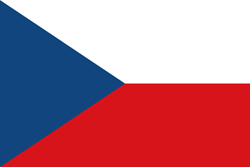
Intro
Particle physicists in Czech Republic are curious and keen on discovering of all beauties and secrets of the microworld - pretty much like their colleagues all over the macroworld. There are teams of tens Czech physicists on ATLAS and ALICE experiments at CERN, studying collisions of protons and heavy ions. Heavy ion collisions are studied on STAR and sPHENIX in BNL and HADES and CBM in FAIR as well. Czech teams also participate in Electron-Ion Collider and linear positron-electron collider preparation. Smaller Czech teams are involved in neutrino physics research on NOvA, Daya Bay, JUNO and KATRIN, on astroparticle experiments Auger and CTA, on Belle II "beauty-factory" experiment in KEK and on several other experiments focused on various topics. Theorists are trying to wrap their head around topics like String Theory and Quantum Qravity, Grand Unified Theories, Chiral Perturbation Theory, phenomenology of heavy ion collisions, Cosmology and others.
Many particle physicists all over the Czech Republic enthusiastically organize various outreach events for general public. Physics is brought to music festivals or physics meets arts events, general public and high-school students build simple experiments at workshops or as part of big projects like CZELTA, high-school students are becoming particle physicists for one day in dedicated workshops and they are visiting Czech labs commonly. Of course, Czech physicists give engaging talks for general public, write various kinds of articles, give interviews for TV, radio and newspapers and they visit high-schools or even teach special physics courses for interested high-school students. Particle physicists are in contact with high-school teachers via various programs. For example, high-school teachers have regular opportunities to visit CERN. And high-school students too. Particle physics is our passion!
Details
JOINED: 2016
CURRENT STATUS: MEMBER
Čeští částicoví fyzikové jsou zvědaví a touží odhalovat všechny krásy a tajemství mikrosvěta - podobně jako všichni jejich kolegové z makrosvěta. Desítky českých fyziků studují srážky protonů a těžkých iontů na experimentech ATLAS a ALICE v CERN. Srážky těžkých iontů jsou také zkoumány Čechy na experimentech STAR a sPHENIX v BNL, HADES a CBM ve FAIR. České týmy se také podílejí na přípravách nových urychlovačů, jejichž cílem je studovat srážky elektronů s těžkými ionty a elektronů s pozitrony. Menší české týmy se podílejí na neutrinové fyzice v experimentech NOvA, Daya Bay, JUNO a KATRIN, na astročásticových experimentech Auger a CTA, v "továrně na krásu" Belle II v KEKu a na několika dalších experimentech zaměřujících se na různá témata. Teoretikové se zabývají věcmi, jako jsou strunová teorie, kvantová gravitace, velké unifikační teorie, chirální poruchová teorie, fenomenologie srážek těžkých iontů, kosmologie a další.
Mnozí částicoví fyzikové energicky organizují po celé České republice nejrůznější popularizační akce pro širokou veřejnost. Fyzika se tak dostává na hudební festivaly a prolíná se s uměním v dedikovaných projektech, středoškoláci a veřejnost stavějí jednoduché experimenty na jednorázových workshopech, nebo jako součást velkého projektu CZELTA, středoškoláci se na den stávají částicovými fyziky a také běžně navštěvují české laboratoře. Samozřejmě také částicoví fyzikové v ČR běžně přednášejí pro širokou veřejnost, píší nejrůznější články o fyzice, dávají rozhovory pro televizi, rozhlas a noviny, navštěvují školy a někteří na školách dokonce učí pravidelné výběrové kurzy. Česká komunita částicových fyziků udržuje kontakt se středoškolskými učiteli skrze různé speciální programy. Například mají středoškolští učitelé pravidelné příležitosti k návštěvě CERNu. A také středoškolští studenti. Částicová fyzika je naše vášeň
JOINED: 2016
CURRENT STATUS: MEMBER
Representative
Jiří Rameš
IPPOG
IPPOG Forum Members
Bulgaria
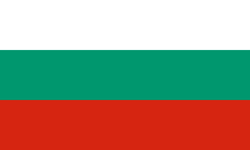
Intro
Sofia Tech Park develops activities to support start-ups, small and medium enterprises, science, education and innovation. There are few main components included in the park:
Incubator – The incubator community includes start-ups and developed companies, investment funds and educational organizations.
Forum – A venue for events in the field of science, education, innovation, technology and entrepreneurship.
Experimentarium – A permanent interactive composition “TechnoMagicLand” for children with interests in the field of natural sciences.
Laboratory complex (R&D&I consortium) – Our 11 laboratories offer an opportunity for development of research and business projects in various research areas.
Details
JOINED: 2016
CURRENT STATUS: MEMBER
София Тех Парк развива дейности в подкрепа на стартиращи предприятия, малки и средни предприятия, наука, образование и иновации. Има няколко основни компонента, включени в парка:
Инкубатор – Общността на инкубатора включва стартиращи и развити компании, инвестиционни фондове и образователни организации.
Форум – Място за събития в областта на науката, образованието, иновациите, технологиите и предприемачеството.
Експериментариум - Постоянна интерактивна композиция “ТехноМеджиkЛенд” за деца с интереси в областта на природните науки.
Лабораторен комплекс (Консорциум за научноизследователска и развойна дейност) – Нашите 11 лаборатории предлагат възможност за развитие на изследователски и бизнес проекти в различни изследователски области.
JOINED: 2016
CURRENT STATUS: MEMBER

